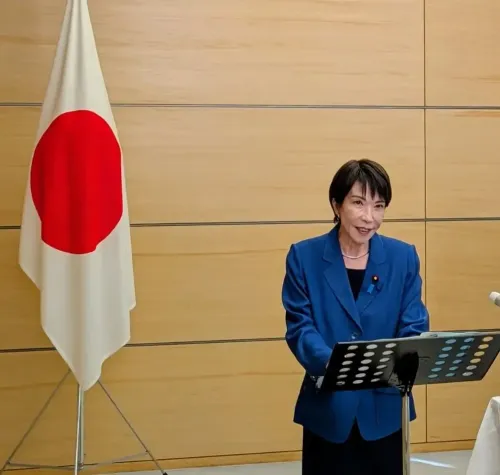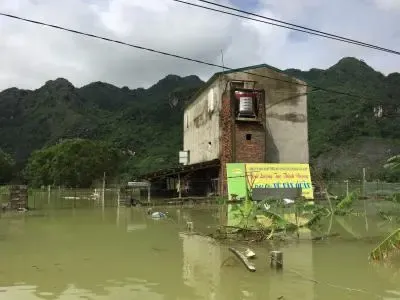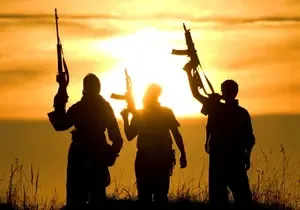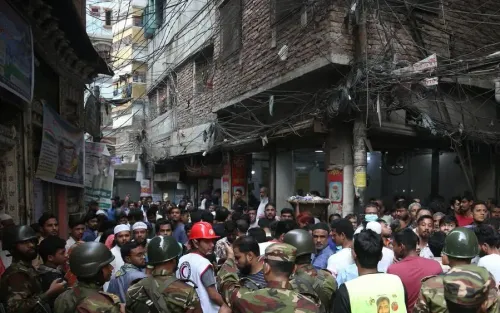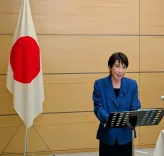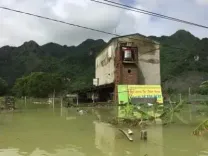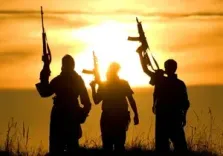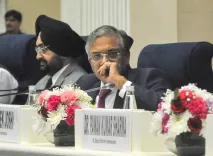Is Barbarism Totally Unacceptable? World Leaders Respond to Pahalgam Attack and Rally Support for India
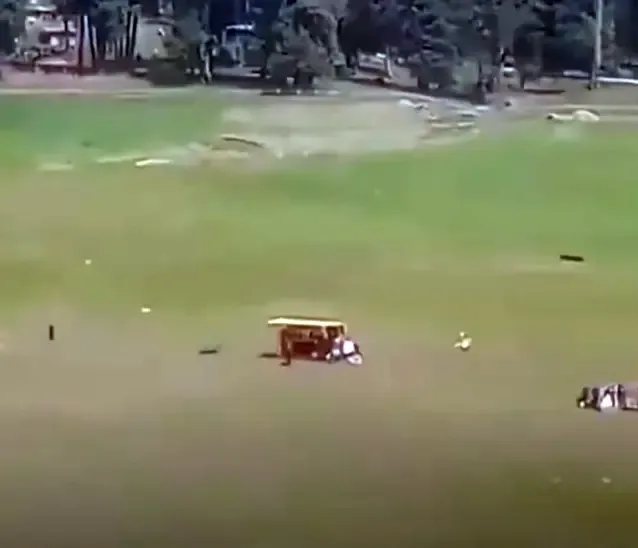
Synopsis
Key Takeaways
- Global condemnation of the Pahalgam terror attack.
- Leaders from various nations expressed solidarity with India.
- India's commitment to justice for the victims.
- Importance of international cooperation against terrorism.
- Shared responsibility to combat terrorism globally.
New Delhi, April 27 (NationPress) Following the recent Pahalgam terror attack, multiple global leaders have reached out to Prime Minister Narendra Modi, issuing a strong condemnation of the incident and affirming their unwavering support for India, as stated by the Ministry of External Affairs.
The incident, which occurred on April 22 in the Baisaran meadows—a renowned tourist spot in the scenic region of Pahalgam, Jammu and Kashmir—involved a group of terrorists who opened fire on unsuspecting visitors, resulting in 26 fatalities.
The victims were deliberately targeted based on their religion, segregated, and shot at close range. Among those who lost their lives was a Nepali citizen and a local Muslim ponywalla.
In response to the Pahalgam attack, India has initiated measures against Pakistan, which has been accused of harboring and facilitating terrorism in the Indian union territory.
US President Donald Trump was among the first leaders to contact PM Modi following the attack, expressing his heartfelt condolences for the tragic loss of innocent lives.
Foreign Ministry spokesperson Randhir Jaiswal noted that during their conversation, President Trump condemned the attack and pledged full support for India in seeking justice for the culprits of this appalling act. He emphasized the shared commitment between India and the United States in the fight against terrorism.
Australian Prime Minister Anthony Albanese also expressed his support in the ongoing battle against terrorism, denouncing the horrific attack.
In a conversation with PM Modi, he conveyed his condolences for the innocent lives lost and expressed solidarity with the Indian populace during this sorrowful period, reaffirming his commitment to combating terrorism.
Nepal's Prime Minister K.P. Sharma Oli condemned the abhorrent attack and extended his condolences for the precious lives lost.
PM Modi also expressed his condolences for the demise of a young Nepali national in the attack, reiterating India’s dedication to bringing the perpetrators of this brutal act to justice.
Both India and Nepal are united in their efforts against terrorism, affirmed PM Modi.
Sudip Neupane, a 27-year-old Nepali national, was among the 25 Hindus who perished in the attack. Sudip had arrived in Srinagar on April 19 with his mother, sister, and brother-in-law.
Prime Minister of Mauritius Dr. Navin Ramgoolam expressed his deepest condolences regarding the senseless killings of innocent individuals in the Pahalgam attack.
He categorically condemned the cowardly act and offered support and solidarity to the people of India during this painful time, emphasizing the unity of both nations in combating terrorism.
US Vice President J.D. Vance also called PM Modi to condemn the atrocious attack in Jammu and Kashmir, offering his condolences for the lives lost and reaffirming that the United States stands with India during this challenging time.
He assured PM Modi of the US's readiness to provide comprehensive support in the collective fight against terrorism.
PM Modi expressed gratitude towards Vice President Vance and President Trump for their supportive messages.
Israel's Prime Minister Benjamin Netanyahu engaged in a phone conversation with PM Modi, strongly denouncing the terror attack on Indian territory and expressing solidarity with both the Indian people and the victims' families.
In discussions regarding the barbaric nature of the cross-border terrorist act, PM Modi reiterated India's steadfast resolve to hold accountable the perpetrators and their supporters.
During his communication with PM Modi, the King of Jordan, Abdullah II, rejected terrorism in all its forms, stating that there is no justification for such acts.
He condemned the gruesome attack and conveyed heartfelt condolences for the loss of innocent lives.
PM Modi appreciated King Abdullah II's message of solidarity and echoed the sentiments of the Indian populace regarding the necessity of decisive action against the perpetrators behind this heinous act.
Japanese Prime Minister Shigeru Ishiba stated that terrorism is never justified. In his conversation with PM Modi, he expressed profound condolences for the lives lost in the attack.
Both leaders underscored that terrorism poses a significant threat to humanity.
“Those who advocate for democracy must unite against terrorism,” said the Japanese Prime Minister.
PM Modi shared an evaluation of the cross-border terror attack and pledged to address it firmly and decisively.
French President Emmanuel Macron called PM Modi, extending his personal condolences for the brutal slaying of innocent individuals in the Jammu and Kashmir attack.
He condemned the attack vehemently, expressing full support and solidarity with the Indian people, stating that this type of barbarism is absolutely unacceptable.
PM Modi thanked him for his supportive message and affirmed India’s strong commitment to achieving justice for the perpetrators.
Italian Prime Minister Giorgia Meloni voiced her country’s full support in the fight against terrorism.
She condemned the terrible attack on Indian soil and conveyed her thoughts and prayers for the victims, wishing a swift recovery for the injured.
PM Modi appreciated her call and the clear message of support against terrorism and its backers.
India and Italy will continue to collaborate, including on international platforms, to enhance counter-terrorism efforts, PM Modi stated during their conversation.
Egyptian President Abdel Fattah Elsisi condemned the terror attack and reaffirmed his country’s solidarity with India in the battle against terrorism.
He expressed sincere condolences for the precious lives lost in the horrific terror attack on Indian soil.
PM Modi briefed the Egyptian President on the cross-border terror attack and expressed gratitude for his support and solidarity.
The Prime Minister of the Netherlands, Dick Schoof, expressed condolences for the tragic and inhumane cross-border terror attack in Pahalgam. He condemned the cowardly act and rejected terrorism in all its forms.
PM Modi thanked PM Schoof for his supportive words and expressed India's eagerness to work closely with the Netherlands to bolster global efforts against terrorism.
The UK Prime Minister, Keir Starmer, described the attack as barbaric. He conveyed heartfelt condolences for the innocent lives lost in the heinous attack on Indian soil and asserted that the UK stands with India during this tragic time.
Sri Lankan President Anura Kumara Disanayake expressed solidarity with India during this trying period and reaffirmed the mutual commitment to combat all forms of terrorism.
He conveyed sincere condolences for the tragic loss of innocent lives in the attack on Indian soil in Pahalgam, unequivocally condemning the vile act of terror.
UAE President Mohamed Bin Zayed Al Nahyan expressed his condolences regarding the loss of lives in the barbaric terror attack on Indian territory in Jammu & Kashmir.
He condemned the attack and expressed unwavering support and solidarity with India.
PM Modi acknowledged his sentiments and words of sympathy and support.
Both leaders concurred that terrorism should be renounced in all its forms.
PM Modi reiterated India's firm resolve to bring the perpetrators of this heinous crime and their supporters to justice.
Iranian President Masoud Pezeshkian, while condemning the terror attack in Jammu and Kashmir, extended his condolences to the victims.
Both leaders agreed that there can be no justification for such acts of terror, and all who value humanity must unite in the battle against terrorism.
PM Modi shared the outrage and sorrow of the Indian people and their determination to confront those responsible for the terror attack and their supporters decisively.
PM Modi also conveyed condolences for the loss of lives in the explosion in Bandar Abbas and wished a speedy recovery for the injured.

